Tag Archive for: colon cancer
What Can Patients Do to Access Better Colon Cancer Care?
What Can Patients Do to Access Better Colon Cancer Care? from Patient Empowerment Network on Vimeo.
What can patients do to access quality colon cancer care? Dr. Suneel Kamath shares tips on how to advocate for yourself, the importance of quality care versus convenient care, and colon cancer resources.
Dr. Suneel Kamath is a medical oncologist at the Cleveland Clinic Cancer Institute. Learn more about Dr. Kamath.
See More from DETECT Colon Cancer
Related Resources:

|
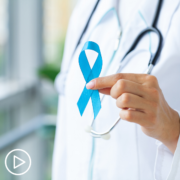
|
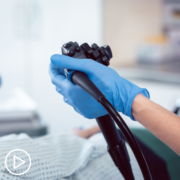
|
Transcript:
Katherine:
If patients feel like they’re not receiving good care or they feel like they’re being treated unfairly, what steps should they take to access better overall care?
Dr. Kamath:
That’s a touchy one. It makes me sad that that even happens, but it does. I would say just never be afraid to be an advocate for yourself. To me, it’s your life and the consequence of bad healthcare, unfortunately, is not going to be on those providers. It’s going to be on you. Unfortunately, I do hear from a lot of people they worry about burning bridges, or annoying someone, or angering the doctors that they’re working with. I would tell them, “Don’t worry about that.” I don’t think people need to care about my feelings or the doctor’s feelings about the situation.
You need to make sure you’re getting the best healthcare possible. Always feel comfortable getting a second opinion, going to a bigger center. I always recommend go to the main hospitals in your area. In the U.S. especially, I think we’re too focused on convenient healthcare and not the quality of the healthcare. I would definitely advocate, even if it takes you an hour to drive downtown to Duke or Johns Hopkins in your area, or the Cleveland Clinic, or the Mayo Clinic, or whatever, it’s worth that time compared to the person who just might be five or 10 minutes from you.
Katherine:
Right. Are there resources available now that might be useful for people who need, want more information?
Dr. Kamath:
Yes, are you talking about things that they could find online or read about? It’s in terms in of accessing care or just generally about …
Katherine:
Yeah, accessing care.
Dr. Kamath:
Yeah. I think there, again, I would go back to the American Cancer Society. The other ones that are really great, too, are – for colorectal cancer, especially, there are a number of really great patient advocacy organizations. The two that are coming to mind are the Colorectal Cancer Alliance and then Fight CRC. Both of them have phenomenal resources as far as patients who have gone through the whole journey and various phases of the journey. What I love for them, too, is usually there’s somebody that can represent your area in those settings, in those support groups and whatnot.
I definitely think they’re a great resource in helping people find out who are the best doctors in your area. How did you get connected with them? Unfortunately, we all have phone numbers online and whatnot to find us. But we all know when you call them you end up in this interminable loop, it seems like, sometimes to get an appointment. It’s hard to navigate it all. I think a lot of times these patient advocacy organizations can be great bridges to both finding who the right people are and how do you best get in with them.
What Are Common Colon Cancer Health Disparities?
What Are Common Colon Cancer Health Disparities? from Patient Empowerment Network on Vimeo.
What are common colon cancer health disparities? Dr. Suneel Kamath explains what a health disparity is, the groups impacted by these differences, and how the medical community addresses them in colon cancer care.
Dr. Suneel Kamath is a medical oncologist at the Cleveland Clinic Cancer Institute. Learn more about Dr. Kamath.
See More from DETECT Colon Cancer
Related Resources:
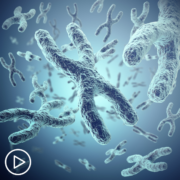
|
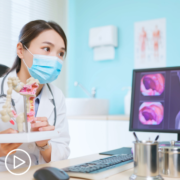
|

|
Transcript:
Katherine:
Disparities in healthcare can impact a patient’s experiences and outcomes. What are some common health disparities?
Dr. Kamath:
Yeah, there are so many. I think with colorectal cancer in particular, access is really a huge one. People who are in underserved communities, often people of color, have less access due to systemic racism in healthcare and in insurance, lack of opportunity with employment. I’ve always thought having a purely employer-based healthcare system is not the smartest idea.
People who are often the sickest are the least able to work and the least able to maintain their health insurance. It does a disservice to our population to have thing set up that way. Yeah, I think that’s a huge barrier. I think there’s also a lot of stigma, especially amongst people of color, around colonoscopies, things to do with your colon and rectum and whatnot. I think that’s something we also need to work on, to normalize that as something that should be done regularly and that this isn’t a bad thing. It’s just something we all have to do.
Katherine:
Right. Well, what is being done by the medical community to address these imbalances?
Dr. Kamath:
I’ve really seen, I think, a legitimate push towards community outreach in the last few years. Unfortunately, we’ve known about these disparities for decades and I think a lot has been said about addressing them since the ‘80s and ‘90s.
But to be honest with you, I don’t think very much was really done until recently. What I’ve seen is a really concerned effort to put resources into identifying what are those barriers. Where is the distrust coming from? Who are trusted sources in your community? We’re tapping into pastors and preachers and the barbershop guy. You don’t ask people, “Who do you trust to get your information from?” If you don’t ask the question you’re never going to know.
Recently, I think we’ve actually really done the work to find out what is going to motivate you to get something done? What’s going to make it feel normal to you and having trust healthcare? We’re seeing a lot more engagement, I think, as a result of that.
Katherine:
Are members of the medical community going out into the African American community to find out who they should be talking to?
Dr. Kamath:
We have been, actually. I reviewed a grant – just to speak of Cleveland Clinic in particular, a couple of years ago that the project that is being funded by it is still ongoing. Basically, we conducted focus groups of people at church. After the service was done, we conducted a focus group to ask them, “What are your thoughts about screening?” It was for colon cancer and for others as well. “What are your thoughts about this? What are your fears about it? What are things we could do to make you feel more comfortable with accessing this part of your care? Who do you go to to get trusted information?”
As a result of that, doing it in their community, in the church setting where they feel safe and comfortable, we saw significant spike in the number of people who came for colonoscopies, for mammograms. We do PSA testing there and we set up a lab there. We found a big spike in the number of people who got those things done and we identified quite a few people who had cancer at early stages and we were able to cure them at much earlier stages than otherwise.
What Is the Role of Genetic Testing in Colon Cancer Care?
What Is the Role of Genetic Testing in Colon Cancer Care? from Patient Empowerment Network on Vimeo.
Dr. Suneel Kamath discusses the role of genetic testing in managing colon cancer. From understanding hereditary mutations to the significance of family history, learn why awareness is important.
Dr. Suneel Kamath is a medical oncologist at the Cleveland Clinic Cancer Institute. Learn more about Dr. Kamath.
See More from DETECT Colon Cancer
Related Resources:
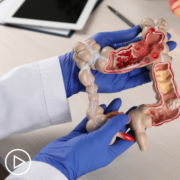
|

|

|
Transcript:
Katherine:
Where does hereditary testing or genetic counseling come in as a screening tool?
Dr. Kamath:
Hereditary testing, I think, is so important. I wouldn’t say it’s the best screening tool. It’s often best once somebody has already been diagnosed and you know that the disease is in the family. I do think it’s really, really important for people who have a family history of any cancer. Again, I go back to the fact that I think a lot of us don’t really know our family histories. I find for a lot of people when they’re first diagnosed with a cancer, that’s the first time they go talk to Mom and Dad, and to Uncle Joe Aunt Shirley, and they say, “Hey, do we have anything like this in the family?”
And it actually turns out – I often hear the second and third visits, “It actually turns out I do have a strong family history of cancer.” I just urge people that it’s not an easy thing to talk about, but have that conversation with your family. Also, be open to sharing that information if it was you because these things have heavy implications on everyone in your entire family.
Also, importantly, it doesn’t have to be the same cancer. A lot of people think it’s only if you have a family history of colorectal cancer that you might be at increased risk of others. But there are many syndromes that link uterine with colorectal and stomach and breast and whatnot. Being aware of any family history of cancer can really help us trigger the right genetic testing to find out if you have a hereditary syndrome or not.
What Are Colon Cancer Screening Guidelines?
What Are Colon Cancer Screening Guidelines? from Patient Empowerment Network on Vimeo.
What are the guidelines for colon cancer screening? Dr. Suneel Kamath explains the current recommendations, including the appropriate screening age and reviews risk assessment based on factors such as family history and race.
Dr. Suneel Kamath is a medical oncologist at the Cleveland Clinic Cancer Institute. Learn more about Dr. Kamath.
See More from DETECT Colon Cancer
Related Resources:

|

|

|
Transcript:
Katherine:
It seems like the suggested ages for screening may vary based on gender and race and family history. What are the current screening guidelines?
Dr. Kamath:
The current screening guidelines that are unfortunately due this rise, there is now recommendation for starting colon cancer screening at age 45. That’s really for everybody. There are certain people that really should be screened even earlier. We definitely know that the black community is affected at a higher rate. There are some professional societies, like the AGA or ACG, that actually recommend starting even earlier in the black community, maybe even by age 40.
And then, the other thing I always try to emphasize is with this is the usual screening guidelines that we talk about are for what we call the average risk population. I do think that we overestimate how many people are average risk. One of the things that I think is not talked about as much is that if you have a family history of even polyps – high risk polyps – that also means that your family members should get screened earlier, 10 years earlier, than the age that you were found to have a high-risk polyp.
But my experience has been most people don’t share with their families that they had those. Let’s say I had a colonoscopy done one day and they found those, they get taken out, and they just say, “Oh, come back in three years,” instead of 10. As far as I’m concerned, that’s where it ends. But actually, the fact that I had those polyps has implications for my siblings, for children, and everything. I don’t think most people are in the habit of disseminating that information. As a result of that, a lot of people are probably at increased risk and they’re really not aware of it.
Katherine:
Yeah. Where can patients find the most up-to-date information regarding screening?
Dr. Kamath:
The best resource, to me, is the American Cancer Society, their websites. They’re highly reliable, they’re easy to understand, and I find that they’re very balanced. They’re not going to be overly pushing one side or the other. But they’re going to be evidence-based. As we all know, there is so much fake news and misinformation out there, especially when it comes to health. I think having a resource you could really trust and understand is key and the American Cancer Society, you find, is an excellent resource.
Why Are Colon Cancer Cases in Young People on the Rise?
Why Are Colon Cancer Cases in Young People on the Rise? from Patient Empowerment Network on Vimeo.
Why are colon cancer cases rising among young people? Dr. Suneel Kamath delves into the risk factors, early symptoms of colon cancer, and the importance of consulting with your doctor.
Dr. Suneel Kamath is a medical oncologist at the Cleveland Clinic Cancer Institute. Learn more about Dr. Kamath.
See More from DETECT Colon Cancer
Related Resources:

|

|

|
Transcript:
Katherine:
Well, colon cancer cases in young people are on the rise. Do we know why this is happening?
Dr. Kamath:
Yeah, honestly, we really don’t to this point. We have a lot of hypotheses that we’re investigating to get to the bottom of that but it does seem like some of the usual risk factors for developing colon cancer later in life are still true. Obesity, sedentary lifestyle, a diet that’s high in red meat, processed foods. I do think to some extent the fact that we’re doing these things earlier and earlier in our lives. I think we’re seeing that the rates of obesity and overweight are not just increasing but they’re also occurring in people’s teenage years and in their 20s and 30s.
It’s a time dependent process. I do think some people being at a higher than healthy body weight and leading a sedentary lifestyle starting at age 10 may lead to a cancer by age 30 or 40. I do think that’s part of it. But I do think there’s probably some other undescribed factor. We know plenty of people who come in who are runners and healthy, and honestly they’re healthier than I am to be honest with you and they still develop this for no reason. I am sure there’s some other exposure that we still need to identify.
Katherine:
What symptoms should young people be paying attention to?
Dr. Kamath:
It’s a great question. Fortunately, with early onset colorectal cancer, it’s much more likely to be on the left side of the colon, or closer to the exit, if you will.
The good thing about that is the symptoms of it can be a little bit easier to detect. A lot of people describe to me that they have more blood in their stool. They found that they were straining harder than normal or having had a thinner stool caliber. I would also emphasize that these are often symptoms that go on for weeks and months at a time. All of us might eat the wrong thing for a day or two and get some stomach issues here or there so I don’t want people to overreact to every little symptom.
Certainly, if you’re having constipation that’s going on for several weeks in a row, that’s often not going to be a benign thing. If you have that type of symptom and it’s persistent, definitely talk to your doctor and get it checked out.
Research Advances in Colon Cancer Screening and Detection
Research Advances in Colon Cancer Screening and Detection from Patient Empowerment Network on Vimeo.
What are the latest research advances in colon cancer screening and detection? Dr. Suneel Kamath explores cutting-edge screening modalities, including a noninvasive test and innovative blood tests.
Dr. Suneel Kamath is a medical oncologist at the Cleveland Clinic Cancer Institute. Learn more about Dr. Kamath.
See More from DETECT Colon Cancer
Related Resources:

|

|

|
Transcript:
Katherine:
The American Society of Clinical Oncology annual meeting just wrapped up. What were the highlights from the meeting related to colon cancer screening and detection?
Dr. Kamath:
This was some evidence that came out prior to the meeting but there was quite a bit of buzz about it at ASCO itself. There’s a number of new screening modalities that have obtained their FDA approvals or have had major data releases for, which have looked extremely promising. The first one that comes to mind is the ColoSense test. This is an RNA-based stool test. It’s a stool test similar to Cologuard but it’s a slightly different technology where it’s using RNA instead of DNA like Cologuard did.
Similar to many of the other tools, it’s showing excellent performance in terms of how sensitive it is to detecting colon cancer. They showed in a prior publication they could detect almost 95 percent of colorectal cancers. It was also a rather specific test, too, so 88 percent specificity. What this is telling us is that this test if very good at detecting colorectal cancer when it’s there but also, equally importantly, it’s very good at not giving you a false positive, which is also very important with any screening test.
So, we’re really excited to see that. We’re increasingly thinking about noninvasive ways, beyond colonoscopy, that we can improve colon cancer screening.
Katherine:
How does it compare with Cologuard, then?
Dr. Kamath:
This one is called ColoSense, yeah. I would say both of these numbers in terms of the sensitivity, meaning that’s the level of detection. If someone does have colorectal cancer, how well do you detect that. That sensitivity of almost 95 percent is definitely a little bit higher. Specificity is also, I would say, a little bit higher. I do think that this test would likely both detect more colorectal cancers that Cologuard would and it would also give you fewer false positives at the same time.
Katherine:
And is this going to be something that people can take the test at home?
Dr. Kamath:
Yes. This should be because it says a stool-based test. I’m sure a lot of the logistics would still need to be worked out, as with any new test. Having the kit sent to the primary care doctors’ offices and things like that. Arranging for that infrastructure, I’m sure, will take some time. But, yes, this test is pretty easy and simple to do. It should be the same as sending in any other stool-based test into a lab.
Katherine:
Is there other research you’re excited about?
Dr. Kamath:
Yes. Another one that I’m really excited about is there are these blood-based screening tests as well. A couple are coming to mind. One is from Guardant Health. They have been developing this assay specific for colorectal screening for some time. They’ve also been talking about their data for a blood-based test.
For them, the number is also still quite good. They’re saying that the sensitivity is about 83%, so maybe a little bit lower than the RNA one but specificity is 90 percent. So, maybe actually a little bit better with that. So, I’m very excited about this one because this is a blood-based test that could be done at a doctor’s office. We all know practicalities are if you can just order a test in the lab and have someone get a draw the same as getting your lipid panel checked or other things that are routinely done, that’s very easy to do and you can be pretty certain someone’s going to follow through on that.
Whereas, we know with these stool-based tests, it’s about a third to half of patients, even though you send them home with a kit, you may not get the specimen back at all.
Tips for Parenting with Cancer
In November 2018, I was diagnosed with Stage IIIc colon cancer. I was 37 years old and I just returned to work from my parental leave. When I heard those dreaded words “you have cancer” my first thoughts were of my small children. At the time of my diagnosis, I had a 6 month old baby and a 3 year old. I was terrified. How would we weather this storm? How would I care for my baby through surgery and chemo? How would I help my curious and observant 3 year old understand everything that was going on? On top of all of those questions, I often felt like the youngest person at the infusion center and the ONLY person navigating cancer, preschool drop-offs and middle of the night wake-ups.
Juggling two small kids is hard work on a good day; when you add a cancer diagnosis and treatment to the mix, an already full plate can simply overflow. Here are some tips to help you if you are doing the seemingly impossible work of parenting with cancer.
Talk to your kids.
I was nervous to talk to my curious three-year old about my cancer. I knew that she was picking up on hushed tones, tears, and changes to our family’s routine. It was scary to start the conversation but I knew that she needed to have an age-appropriate understanding of what was happening in order to best cope. Kids are magical thinkers and left to their own devices may create a story about what is happening that is even scarier than what is actually happening.
When you talk to your kids remember to be honest, clear, and to use age-appropriate language. If you are having a hard time getting started, read a book about cancer together. Sometimes reading together can take the edge off just enough to start a larger conversation.
It’s o.k. to not know all the answers.
You’ll have more than one conversation with your child about cancer and that is o.k. Let them know that they can come back to talk with you at anytime. If they ask you something that you don’t know, let them know that you’ll try to find the answer. (And then you actually have to try to find it!) You’ll be building trust with them.
Maintain your child’s routine.
Ok, so this can be hard when you are balancing never-ending doctor’s appointments but the more you can keep your child’s routine the same as it was before cancer, it will help to reduce their stress and the big emotions that can come alongside a parent’s cancer. If you can’t maintain a routine, make sure that you talk to them about it. Or, I’m a big fan of visual calendars (you can always make your own or there are plenty to purchase on-line) to help kids know what’s going on day-to-day.
Parent from the couch (or bed!).
You may be too tired to go to the park, so invite your child to meet you where you are at. From a couch or the bed, you can still color, complete a simple puzzle, read, or play I Spy. If they want to play, but you are too tired, just stay on the couch and WATCH your child play on the floor. You won’t believe how excited they will be to tell you all about the games they are playing. I really like the book Horizontal Parenting: How to Entertain Your Kid While Lying Down by Michelle Woo. It’s not written for a parent with cancer but it is perfect for those of us horizontal parenting on the regular.
Ask for help.
It can be hard to ask for help, especially when you are in the thick of treatment and doctor’s appointments… when you might need it most. Make a list of things that will ACTUALLY be helpful to you and your family, so when someone says to you “let me know how I can help,” you’ll just say, “walking the dog on Wednesday afternoons would be so great!” Or, “if you could take out the trash for the next month, that would be really helpful.” I guarantee your friends will be so glad to help in the ways you most need.
Seek out community.
Being a parent with cancer can be lonely but know that you are not alone. Having the support of people in the same or a similar boat not only helps to cut some of the isolation you may be facing but they can also provide practical advice (i.e. How did you get your toddler to stop bumping into your port? My child is having BIG feelings… how did you help them cope? How do you make dinner when nothing tastes good?”). Look into support groups at your hospital or check out virtual options.
Tell your child(ren) you love them. They already know it but telling them again will feel good to you and to them!
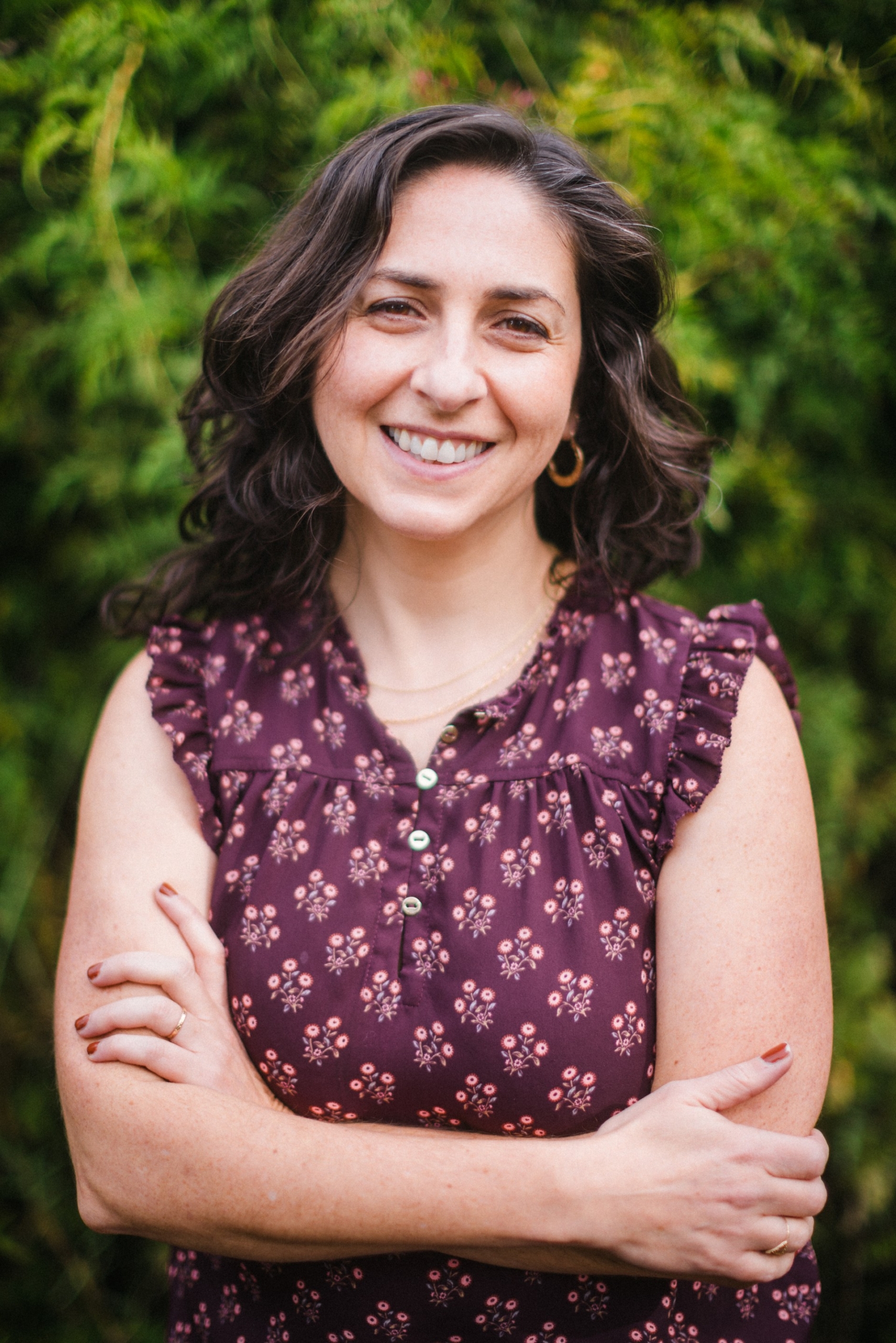
Haley Pollack is the Executive Director and co-founder of Bright Spot Network, an organization dedicated to supporting young parents and guardians with cancer as they raise small children. Haley is a cancer survivor, diagnosed with Stage IIIc colon cancer at 37, with a 6 month old baby and toddler at home. Experiencing the resource gap for young families navigating a cancer diagnosis herself, Bright Spot Network was born. Haley lives in Oakland, CA with her two kids, husband, and dog.
Introducing Jessica Catlin, Colorectal Cancer Empowerment Lead
Jessica Catlin Introductory Video from Patient Empowerment Network on Vimeo.
PEN’s new Empowerment Lead, Jessica Caitlin, introduces herself and her journey with rectal cancer. She also encourages anyone looking for support to reach out to her at jess@pivotsolutions.live or on Twitter at @jesscatlin or LinkedIn.
Transcript
Jessica:
Hi, I’m Jess Catlin. I am a survivor of stage 3B rectal cancer, young onset, and I am so excited to be the new Colorectal Cancer Empowerment Lead for the Patient Empowerment Network.
I currently live in Chicago and I was here when I was diagnosed at the age of 39 with rectal cancer, only after I was turned away at age 38 because the doctors thought I was too young for colon cancer.
Obviously, being an advocate for myself was a huge part of my success in coming out of rectal cancer. I have been a survivor for five years now, so my doctor says I’m officially cured. But being empowered was a huge part of my treatment, as well, and as being a survivor too and some of the issues that have come up ever since my treatment was over.
So, I have done a variety of different things with organizations, speaking at walks, speaking to medical school students, so on and so forth. So, now being part of the Patient Empowerment Network seems like a wonderful way to really tie it all together. We’re here to help you, to answer questions, to be a source of information, inspiration. Even just to be a friendly ear because nobody knows this journey like somebody else who has been through it. As the organization’s name suggests, to empower you because we know empowered patients really have the best chance to thrive.
Listed here on my bio page are links to some of those talks and webinars, and so on and so forth, that I have done with other organizations if you want to check those out. Going forward, I will be creating original content for the Patient Empowerment Network and I don’t know what that looks like yet, I want to hear from you. I want to know what is most helpful. Is it blogs? Is it short videos? Is it webinars or panel conversations? Let me know. My contact information is here on this bio page. Please feel free to reach out or on social media as well, and please consider sharing your own story too. Even if you feel like you don’t have it all figured out or are in the middle of things right now, that can be very inspiring and helpful to someone who is following in your footsteps.
Additionally, you can also support Patient Empowerment Network with your time, talent, or treasure. Thank you so much for stopping by. Thank you for being a part of and supporting Patient Empowerment Network.
Millennial Stage IV Colon Cancer Survivor Urges Earlier Screening
Millennial Stage IV Colon Cancer Survivor Urges Earlier Screening from Patient Empowerment Network on Vimeo.
Stage IV colon cancer patient Ashley received her diagnosis at age 33. Watch as she shares her story starting with a routine physical, surgery and treatments that she endured, and lessons learned during her cancer journey.
Special thanks to our partner, Colorectal Cancer Alliance, for helping to make this vignette possible.
Transcript:
My name is Ashley, and I’m from West Virginia but currently reside in Nebraska. In February 2021, I was diagnosed with stage IV colon cancer at the age of 33.
I decided I wanted to join the Air National Guard and had to complete a physical examination. After visiting a hematologist/oncologist for dangerously low iron and hemoglobin levels, I went in for a routine physical a few months later. The physician’s assistant found a mass in my stomach area, and they sent me for a CT scan. The next morning, my husband Josh got the call that I missed. The CT scan had shown three different masses – and was likely cancer.
I was dumbfounded, shocked, and then I felt the tears rolling down my face. My doctor informed me, “You need surgery immediately, since the tumors are getting close to completely closing up your colon.” I also had a tumor on my liver.
I had surgery to remove the tumor before it closed my colon, but the surgeon couldn’t get to the tumor on my liver. After surgery, they told me the three most important things to do while there that would get me home sooner were eating with no issues, walking, and having a bowel movement.
Finally after two surgeries where my liver, gallbladder, one-quarter of my colon, part of my small intestines, appendix, two large tumors, and a lymph node that turned into a tumor was removed, as well as 12 rounds of chemo.
I received news in March 2022 that my cancer is back but will not be as aggressive as it was before. I am taking things one step at a time and one day at a time, trying to stay optimistic at each step.
When someone gets cancer – the “journey” is never over. The fear NEVER goes away. Even when you are declared to have no evidence of disease, there is a possibility cancer can come back. And if it does come back, the chance of fighting and winning again gets slimmer.
If you know someone that has cancer – be kind – just because they don’t look sick, doesn’t mean they aren’t having challenges. Just because their numbers and scans are good doesn’t mean they are in the clear for the rest of their life. Always, always – BE KIND!
Some of the things I have learned during my colon cancer journey are:
- Get your colon cancer screenings on time. Or if you’re too young like me, listen closely to what your body tells you and get annual physicals.
- Say yes to those who want to help by bringing food, checking in, or donating. We are amazed by the support we’ve received from friends, family, and complete strangers.
- Fighting the cancer fight is much easier knowing how many people are on our side and how much love there is for us out there.
- Advocate for yourself! Do research on your specific type of cancer and mutations. If you feel you are being told something that just doesn’t seem right, question it – push the bar until you can’t anymore! There are so many options out there when it comes to cancer and survival, you just need to find the right person that will take care of you!
These actions are key to staying on your path to empowerment.
COLONTOWN University Resources
COLONTOWN is an online community of more than 120 “secret” groups on Facebook for colorectal patients, survivors, and care partners. There are separate neighborhoods focused on patients with different stages of disease, the differing types of treatment, and special interests – such as CRC clinical trials, young-onset CRC patients, and local support groups.. Check out some of their valuable resources below:
1. CRC101 for Newly Diagnosed Patients
CRC101 is your first stop for learning about a diagnosis of colorectal cancer. From understanding the jargon to tips for navigating your first few weeks, you will find everything here that the thousands of patients and caregivers in COLONTOWN think you should know right from the beginning. Learn more here.
2. Diagnostic and Surveillance Testing Learning Center
The Testing Learning Center provides up to date information about liquid biopsies, tumor sequencing, and all the new ways to get information about your cancer. We’ve got not only the science, but also the logistics, covered; how to get a test, and how to get it reimbursed. Learn more here.
3. The Lecture Hall
A collection of more than 30 webinars with leading clinicians and researchers to stay up to speed on everything colon cancer. Learn more here.
March 2022 Digital Health Round Up
Cancer screening is the best tool available in the fight against cancer. Thanks to technological advances, one company is using artificial intelligence to transform the future of cervical cancer screening. Rush Hospital in Chicago is also using an artificial intelligence system to improve colon cancer screening. Both cervical and colon cancer often do not present with symptoms in early stages, so screening is important. A company in Madison is using digital technology to analyze tumor biopsies, in turn allowing for more effective treatment options for providers and patients.
AI Transforms Cervical Cancer Screening
Health experts said the new technology could be instrumental in ensuring earlier detection of pre-cancerous cells and cancer cells and has the potential to save lives, reports Newschainonline.com . A hospital in the UK is piloting the technology using artificial intelligence that takes digital cytology images from cervical smear samples that test positive for HPV (human papillomavirus). The AI sorts through all the cell images and pulls out the images of abnormalities. The expert providers use these images to detect pre-cancerous and cancerous cells, allowing for earlier diagnosis and treatment of cancer. Find more information here.
Rush Deploys AI System for Colon Cancer Screening
The Medtronic GI Genius intelligent endoscopy system can help increase the ability to locate multiple polyps during a colonoscopy by 50 percent, resulting in enhanced diagnosis and treatment of digestive diseases, reports healthitanalytics.com . This Artificial Intelligence helps physicians find polyps that the naked eye cannot see, therefore catching the polyps before cancer can develop. Colon cancer is the second deadliest cancer. Rush Hospital in Chicago, Illinois is using the technology during their colonoscopies. Find more information here.
Madison Company Testing New Technology in Cancer Diagnosis
With three-dimensional imaging licensed from the Wisconsin Alumni Research Foundation, based on work from the lab of UW-Madison biomedical engineering professor Kevin Eliceiri, Elephas Biosciences can analyze live tumor samples to see how well they respond to therapies, reports Madison.com . This can help diagnose all types of cancer with solid tumors. These live tissue samples from the biopsies can be tested with different treatments to see which is most effective. Physicians can try the treatment on the tumor before using it on the patient; this could eliminate blind testing and provide better outcomes with less side effects for patients. Find more information here.
Dana Kaiser is a professional writer and a strong patient advocate, learning from experience during her 22-year career as a nurse.
COLONTOWN’s CRC Biomarkers Worksheet
Editor’s Note: This resource was originally published by COLONTOWN, here.
This tool, developed by COLONTOWN Director of Clinical Trials Programming (and stage IV patient) Steve Schwarze, will help you gather information about your disease and your biomarkers to discuss with your medical team. Download the PDF and fill it out!
Colon Cancer Downloadable Guide
To download the guide, please click: ![]()



